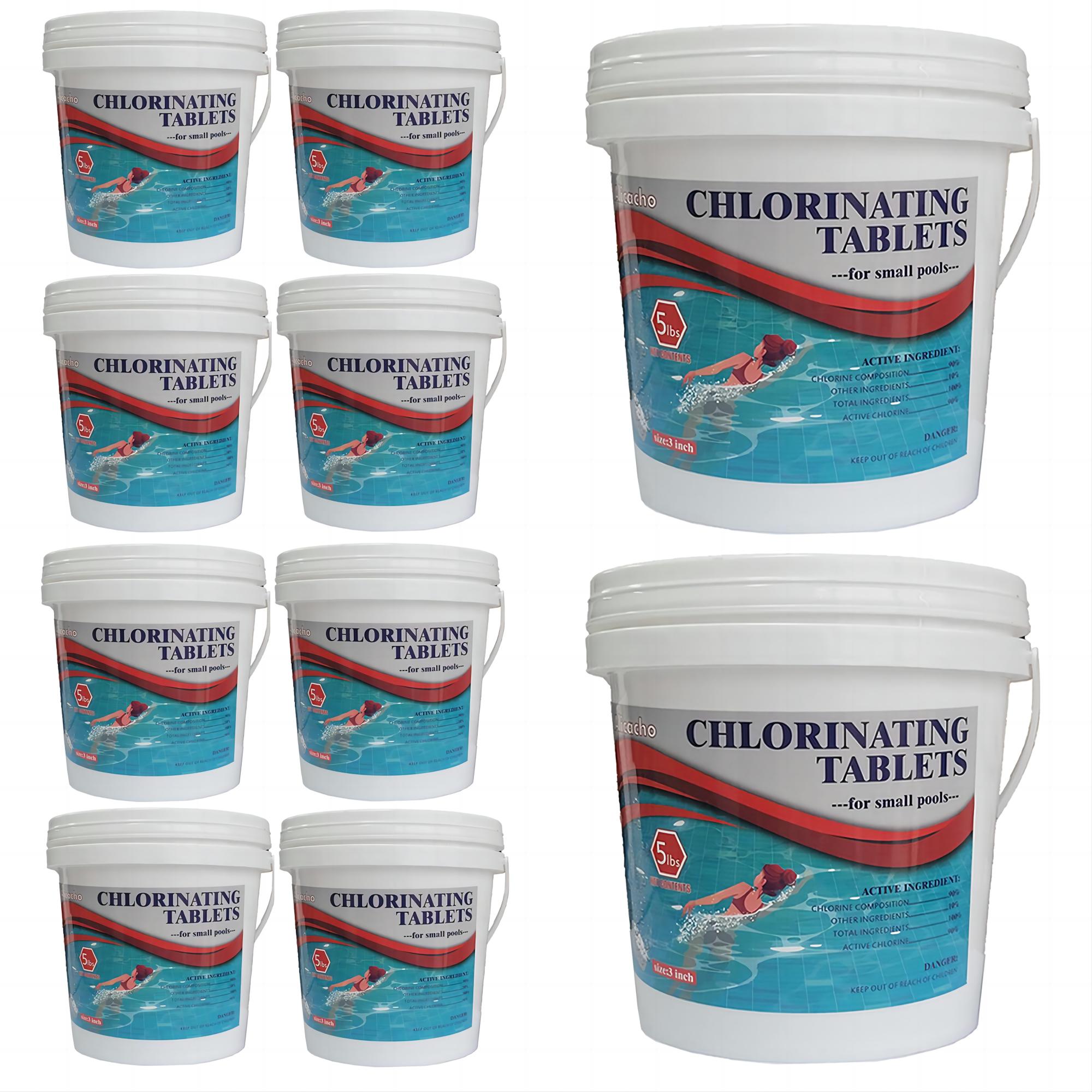Whether you're relaxing in your private hot tub at home or pampering yourself at the spa, keeping your hot tub water clean and safe is critical. Selecting the proper type of chlorine plays a vital role in ensuring hygiene and a pleasant soaking experience. In this guide, we'll take an in-depth look at the different types of chlorine and their suitability for hot tub maintenance.
Part 1. What Type of Chlorine to Use in a Hot Tub?
Chlorine plays a key role in hot tub maintenance. Here are a few common types of chlorine:
-
Chlorine tablets: Chlorine tablets are a common disinfectant that release chlorine evenly to kill viruses, bacteria and control algae growth. They are easy to use but may require more frequent refills. For large bathtubs, 1 inch chlorine tablets are recommended.
-
Liquid Chlorine: Liquid chlorine is a flash sanitizer that can quickly raise the chlorine level in a swimming pool or hot tub. However, the use of liquid chlorine needs to be done with great care as it can lead to over chlorination of the water.
-
Chlorine granules: Chlorine granules (such as PoolClever chlorine granules) are another option. The composition contains 99.0% Sodium Dichloro-S-Triazinetrione Hydrated and 60% Available Stabilized Chlorine, which can effectively and stably release chlorine. They are neither too acid nor too alkaline, and do not deplete quickly at high temperatures. In addition, chlorine particles dissolve quickly, making them suitable for sanitizing hot tubs.

-
Bromine: Bromine is another disinfectant choice. It has a sustained release at high temperatures and is suitable for use in hot tubs. Bromine is excellent at killing germs and oxidizing, has little effect on pH, and doesn't produce a pungent odor like chlorine.
Part 2. How Different Forms of Chlorine Exist in Hot Spring and Pool Spa Water
Chlorine in hot spring and swimming pool spa water exists in two main forms. The first is free chlorine, which has the ability to kill bacteria and oxidize pollutants. When you add chlorine to water, you are actually adding free chlorine.
When free chlorine reacts with contaminants such as oil, bacteria and other organic matter, it is converted to combined chlorine or chloramines. Unlike combined bromine, combined chlorine has less disinfecting power and lacks oxidizing power. Chloramines also emit a pungent odor.
Combined chlorine can be compared to a spent bullet, whose disinfecting effectiveness gradually diminishes. Chloramines, on the other hand, have a pungent odor that can cause red-eye and discomfort. It's worth noting that these problems are less likely to occur if you use bromine, and can be avoided entirely by using alternative disinfectants.
The total amount of chlorine in water can be divided into the sum of free chlorine and combined chlorine, namely "total chlorine". Therefore, when the total chlorine in the water is higher than the free chlorine, it usually means that there is a lot of combined chlorine present. In this case, you may need to electroshock or hyperchlorinate to keep the water safe and clean.
To sum up, in order to maintain the cleanliness and safety of hot spring or swimming pool hot spring water, you can choose the right type of chlorine. Among the many options, we recommend poolclever chlorine granules. Contains UV inhibitors to stabilize chlorine levels and prevent it from burning in the sun. For daily use, 3 oz per 10,000 gallons of pool water is recommended, and for super chlorinated, 21 oz per 10,000 gallons of pool water is recommended.
Part 3. Conclusion
After comparing the different chlorine types together, we can conclude that either granular chlorine or bromine is probably the best choice for a hot tub. Chlorine granules have a stable release profile that provides sustained release in hot water and excellent performance at elevated temperatures without imparting a pungent odor to the water. This makes it a unique advantage when it comes to maintaining hot tub water quality.
However, we also need to realize that each chlorine type has its own unique benefits to suit different needs and personal preferences. Regardless of the type of chlorine you choose, keeping your water clean and safe is key to maintaining a great hot tub experience. So when enjoying a relaxing soak, make sure the chlorine is balanced to ensure your hot tub always gives you the best possible soaking experience.



